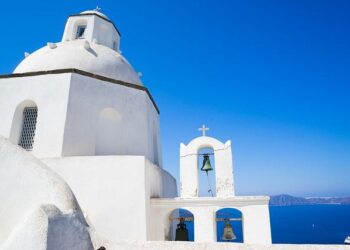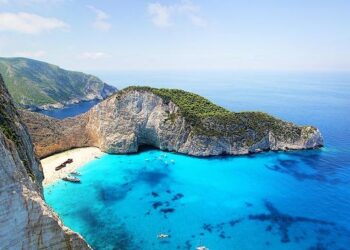greece Unveils Groundbreaking Maritime Spatial Planning Framework for Sustainable Ocean Stewardship
In a pioneering effort to enhance sustainable ocean governance, Greece has launched its inaugural Maritime Spatial Planning (MSP) framework. This strategic initiative aims to align economic progress with environmental protection across the country’s extensive maritime territory. Announced by Greek officials, this significant step underscores a commitment to optimizing marine resource management while safeguarding the nation‚Äôs rich biodiversity. With one of the Mediterranean’s longest coastlines, Greece is poised to set a precedent in responsible maritime practices amid increasing climate challenges and competing interests.
Greece Initiates a Pathway to Sustainable Ocean Governance
The newly introduced Maritime Spatial planning framework marks an essential advancement in managing Greece’s vast marine resources sustainably. This framework serves as a vital tool for balancing various activities within coastal and marine ecosystems, ensuring ecological integrity while promoting economic growth. The primary objectives of this initiative include:
- Protection of Marine Biodiversity: Prioritizing the conservation of endangered species and their habitats.
- conflict Resolution: Addressing potential conflicts among different maritime sectors such as tourism, fishing, and shipping.
- Community Engagement: Encouraging active involvement from local communities and industries in planning processes.
The Greek government intends to establish an extensive data collection system that will monitor marine activities alongside environmental conditions. this system will be crucial for adapting policies in response to emerging challenges like climate change and overfishing. Officials emphasize that this framework not only reinforces Greece’s commitment to sustainable ocean practices but also aligns with European Union regulations on maritime spatial planning. Expected outcomes include:
| Outcome | Description |
|---|---|
| Enhanced Conservation Strategies | An increase in initiatives aimed at protecting sensitive marine ecosystems. |
| Sustained Economic Growth | A boost in sectors such as eco-tourism and responsible fishing practices. |
Key Components of the Framework for Economic and Ecological Balance
The newly established MSP framework seeks to foster a harmonious relationship between economic development and environmental stewardship. Key elements include:
- Integrated Approach: The framework advocates for a thorough view of marine resources, promoting collaboration across various sectors for optimal space utilization.
- Diverse Stakeholder Involvement: Engaging local communities, NGOs, and private enterprises ensures that multiple perspectives are considered during decision-making processes.
- Evidential Decision-Making: Leveraging scientific research guides sustainable practices while evaluating human impacts on aquatic ecosystems.
- Cohesive Regulatory Policies: Establishing guidelines that align developmental goals with ecological protections ensures accountability throughout implementation efforts.
Additionally, specific initiatives have been introduced within this framework aimed at preserving critical marine habitats while fostering economic opportunities:
| >Initiative< | >Description< |
|---|---|
| Marine Protected Areas | Creation of zones where certain economic activities are limited to safeguard biodiversity. |
| promotion of Eco-Tourism | Encouragement of environmentally pleasant tourism initiatives benefiting both economy & ecology. |
| Sustainable Fishing Practices | Implementation of quotas & eco-friendly fishing methods supporting both industry & conservation. |
| < >Action Item</ | < >Description</ |
|---|---|
| Engagement Strategy </ | Developing comprehensive strategies identifying key stakeholders outlining engagement methods. </ |
| Monitoring Mechanisms </ | Creating systems assessing effectiveness stakeholder involvement during planning process. |
















